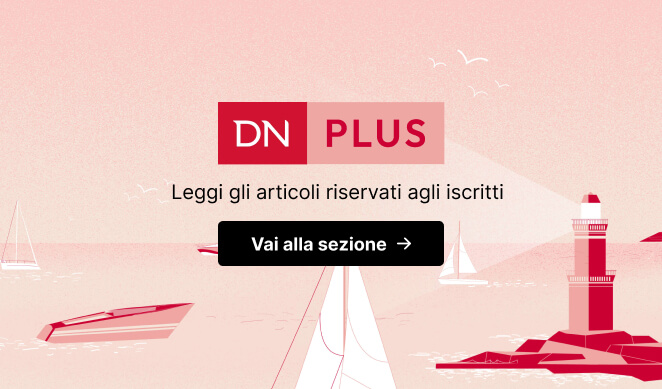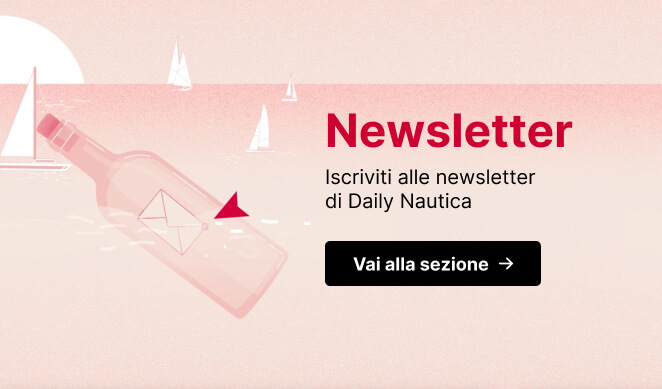International Sailing Schools Association President to DN: “Sailing brings young people back to the real world”
Interview with Tomasz Lipski, speaker at the World Yachting Summit in Monaco on the topics of sailing and teaching it to young people

Interview with Tomasz Lipski, speaker at the World Yachting Summit in Monaco on the topics of sailing and teaching it to young people
Tomasz Lipski, President of the International Sailing Schools Association (ISSA) and of the Administrative Council IYFR Commodore for Eastern Europe, will be among the speakers at the World Yachting Summit. As a great expert in sailing and its teaching to young people (he has been President of ISSA since 2019), having been active in yachting for 30 years and involved in sailing education for 20 years (according to the standards of the Polish Ministry of Sport, the Royal Yachting Association, ISSA), as well as co-founder of numerous associations and sailing clubs, he will focus on his field of specialization.
Daily Nautica, one of the media partners of the Monegasque event, interviewed him to delve into a growing sector such as sailing and its many implications also linked to sustainability and inclusion.
Your speech at the World Yachting Summit will focus on your field of specialization, sailing: what do you think your contribution will be to the Monegasque event?
First of all education is key to everything. The ISSA schools teach around 20,000 students every year. Our instructors introduce them into the sailing world and at the same time increase the safety in sailing traffic. The key task of ISSA is to harmonise and standardise. It is essential, given the fact that the sector is growing and becoming very international. While working with other institutions, we also increase safety and job mobility. Thus, I believe the ISSA’s contribution is substantial.
What role does teaching sailing have today in young people’s knowledge of the marine world and consequently in its protection?
In developed countries, kids got stuck in smartphones and are more and more often live in virtual world. Sailing brings them back to the “real world”, teaches them to assess risks, to learn their limits and transforms them into more reliable members of the society. That includes raising awareness in maritime pollution. I would even say sailing makes them become friends with the nature. When you are so close to the water and nature, you are motivated and dedicated to protect it. In many Asian countries, sailing is kind of an upgrade to your education; it opens you to other cultures and makes you think with a larger perspective – which again includes various global issues like maritime pollution.
Yachtsmen and women, quite often challenge themselves and the surrounding world, becoming in a way better equipped to face everyday life challenges – and as such they often become individuals that are followed by others and this way they can also raise awareness for maritime pollution on larger scale.
Sailing is a low environmental impact mode of navigation, do you think it could become the best choice for transport and tourism, also thanks to the contribution of technological innovation?
Sailing has been always a very eco friendly activity; when sailing you have to deal with the everyday handling of waste and rubbish – this makes you very aware of the pollution and related dangers. The industry is growing. And I am sure it will continue to grow. I think this type of tourism is an optimal solution for the ecosystem: on one hand you are closer to the nature and you can really enjoy it in a wholesome and healthy way; whereas, on the other hand, you are more aware how to care for it and you really appreciate it.
As for the transportation I am not an expert but I more and more often find various solutions that seem to be very eco friendly. I am looking forward to find out more about the top technologies during the coming summit.
At Boot Düsseldorf 2025, ISSA presented the SIPD program, to train sailing instructors for people with disabilities. Do you think that inclusivity could be a driving force for the spread of this sport?
I am sure of it. For many people with disabilities, sailing is an excellent way to enjoy life. Sailing as an activity is very versatile. You can adjust “its application” to your very specific needs; for example, you like extreme sailing you can sail at night in fresh wind, you like sun bathing in private places you can do that, you like sport contests you can compete in regatta, you like to enjoy the company of your family/ friends you can do that. That also includes sailing for individuals with disabilities. We have to show that sailing is truly for everyone. Yes, I believe SIPD sailing can broaden the approach to maritime related activities.
What are the new projects you are working on?
The ISSA and its schools are very active and I will be not able to list all the activities but let me give you some examples. We have cooperation with World Maritime University (an educational facility related to International Maritime Organisation). We have a number of projects that we run with them at the moment. For more than 10 years, every year we have organised festivals of sails for sailing enthusiasts – this year in Turkey and Greece. This is a social event to promote leisure yachting.
Also, every year we do international camps for international youths, where they learn other countries cultures while acquiring some sailing skills. Every year we issue some books in various languages. We also continue to develop procedures and materials for SIPD training.
Topics: Daily Nautica, ISSA, World Yachting Summit



